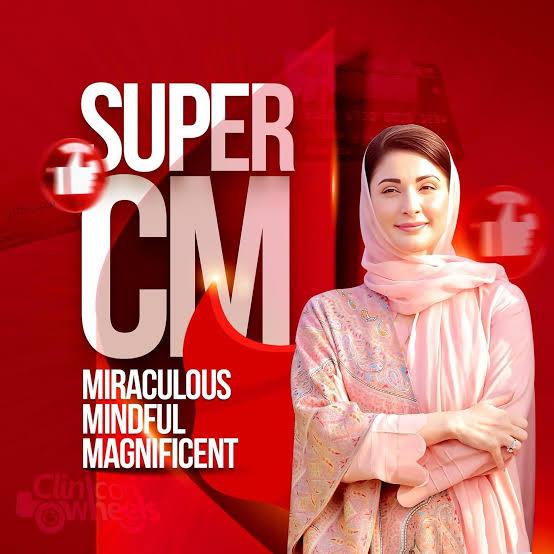By
MUHAMMAD IRFAN SIDDIQUI
TOKYO
Serving Chief Minister Punjab Maryam Nawaz Sharif, the daughter of former Prime Minister Nawaz Sharif, has emerged as a central figure in the revival and rise of the Pakistan Muslim League-Nawaz (PML-N). From her initial days in the political limelight to becoming a dynamic leader, Maryam’s political journey reflects her resilience, strategic acumen, and ability to mobilize public support. This article delves into her contributions to PML-N’s resurgence, her leadership style, and her role in shaping the party’s future.
Early Political Involvement
Maryam Nawaz initially focused on philanthropic and educational initiatives, particularly through the Sharif Trust, which runs educational institutions and hospitals. However, her entry into active politics gained momentum during Nawaz Sharif’s legal and political battles following the Panama Papers controversy. As Nawaz Sharif faced disqualification and imprisonment, Maryam took on a more prominent political role, stepping into the vacuum created by her father’s absence.
Her ability to articulate the party’s narrative and galvanize support during a period of crisis demonstrated her potential as a leader. She was instrumental in portraying Nawaz Sharif’s disqualification as an attack on democracy and civilian supremacy, resonating with the party’s support base.
Shaping the Party’s Narrative
Maryam played a pivotal role in framing PML-N’s political narrative during challenging times. Her speeches often emphasized themes of democracy, justice, and the need for civilian supremacy. She positioned PML-N as a party fighting for the rights of the common people, while also portraying the Sharif family as victims of political vendettas.
Through her fiery rhetoric and social media presence, Maryam was able to connect with a younger demographic, leveraging platforms like Twitter to engage directly with supporters. This digital outreach complemented the party’s traditional methods of mobilization, making PML-N’s message more accessible to a broader audience.
Leadership During Adversity
The period following Nawaz Sharif’s disqualification was a critical test for PML-N. The party faced internal divisions, external pressure from state institutions, and declining public support. Maryam’s leadership during this time was marked by her unwavering support for her father and her refusal to back down in the face of adversity.
Her role during the 2018 general elections was particularly noteworthy. Despite the challenges, including Nawaz Sharif’s imprisonment and allegations of electoral manipulation, Maryam led PML-N’s campaign with determination. While the party did not secure a majority, her efforts kept the party intact and ensured its position as the principal opposition to the ruling Pakistan Tehreek-e-Insaf (PTI).
Mobilizing Public Support
Maryam’s ability to connect with the masses has been a defining feature of her political career. Her rallies and public appearances often draw large crowds, reflecting her appeal among PML-N supporters. She has successfully portrayed herself as a leader who stands with the people, often highlighting issues such as inflation, unemployment, and governance failures under rival political parties.
Her focus on engaging with women and youth has also broadened PML-N’s support base. Maryam’s leadership has reinvigorated the party’s grassroots structures, enabling it to remain relevant in Pakistan’s evolving political landscape.
Challenges and Criticism
Maryam’s rise in politics has not been without challenges. Critics often label her as a product of dynastic politics, questioning her credentials and experience. Her confrontational style, particularly her criticism of the judiciary and military establishment, has also drawn backlash.
Despite these criticisms, Maryam has maintained her stance, arguing that her leadership is rooted in her commitment to democracy and the people of Pakistan. Her resilience in the face of legal battles, imprisonment, and political pressure has solidified her position within PML-N.
Vision for the Future
As Maryam takes on a more prominent role within PML-N, her vision for the party’s future revolves around three key themes:
1. Civilian Supremacy: Maryam continues to advocate for the separation of powers and the primacy of elected representatives in governance.
2. Youth Engagement: Recognizing the importance of Pakistan’s youth, she aims to involve them in the political process, making PML-N more inclusive and forward-looking.
3. Economic Reforms: Maryam’s speeches often emphasize the need for policies that address inflation, unemployment, and economic inequality, resonating with the concerns of ordinary Pakistanis.
Maryam Nawaz and the Revival of PML-N
Under Maryam’s leadership, PML-N has regained much of its lost momentum. Her ability to inspire loyalty among party workers and mobilize public support has been instrumental in positioning PML-N as a credible alternative to PTI. Her role in leading anti-government movements, including the Pakistan Democratic Movement (PDM), has further strengthened her credentials as a national leader.
Maryam’s political journey also reflects a broader trend in Pakistan’s politics, where women are increasingly playing pivotal roles. Her rise underscores the changing dynamics of political leadership in the country and the growing acceptance of women in positions of power.
Conclusion
Maryam Nawaz’s role in the rise of PML-N highlights her resilience, strategic thinking, and ability to connect with the masses. Despite facing significant challenges, she has emerged as a central figure in Pakistani politics, shaping the party’s narrative and mobilizing support during critical times.
As PML-N looks to the future, Maryam’s leadership will likely play a key role in determining the party’s trajectory. Her emphasis on democracy, economic reforms, and youth engagement positions her as a leader who can navigate the complexities of Pakistan’s political landscape and chart a path forward for the party and the nation.














